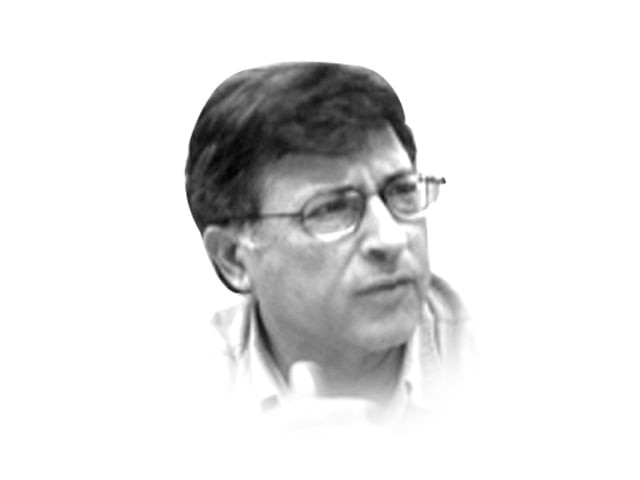No need for increase in nukes: Hoodbhoy
Speakers deliberate on Pakistan’s security situation.

There is no need for Pakistan to expand its nuclear arsenal. The country is facing no direct threat from India or any other state. This was said by an outspoken Dr Pervez Hoodbhoy in the presence of serving and retired military officers – including Inter-Services Public Relations Director General Athar Abbas -- at a seminar here on Thursday.
"Why does Pakistan have the world's fastest growing nuclear arsenal?" asked Dr Hoodbhoy, a physicist and a professor at the Quaid-i-Azam University Islamabad.
He said the military is convinced that the US wants to seize Pakistan's nukes so they want to increase their number to make it difficult for anyone to steal. Also, the military thinks that in the post-US Afghanistan, the nuclear weapons will be useful for defence against any external intervention, particularly from the United States. He said the army is also convinced that US wants to deny Pakistan strategic depth.
"Nuclear weapons have not provided us security. We have internal security threats which we cannot counter with nukes," Hoodbhoy concluded his analysis at the two-day international seminar "Securing a Frontline State: Alternative Views on Peace and Conflict in Pakistan". The seminar was jointly organised by Heinrich Boll Stiftung and Centre for Research and Security Studies, and sponsored by The Express Tribune.
Syed Irfan Ashraf, a lecturer at University of Peshawar, said it is not just a single missile fired by United States drones at a potential terrorist targets, but the subsequent damage that haunts people the most.
Asharf said that after every drone strike, the militants "unleash hell" on the locals. They start search operations in the area to arrest suspected spies and behead them, at times solely on suspicions. Also, he said, when a drone strikes at a single house, other houses in the vicinity are also affected because most of them are made of mud and cannot stand the devastation of hellfire missiles.
He stressed that the drone strikes in the tribal areas are not ending militancy but are instead spreading it. "Had they [drone strikes] been a solution, we would have ended militancy in the area in the past seven years," said Ashraf. He emphasised that the US and Pakistan have to think of available alternative solutions and stop relying solely on drones.
Executive Director SDPI Abid Suleri said that developmental challenges in Pakistan are chronic and endemic and these are policy level challenges. He lamented that Pakistan in its history, never tried people centric paradigm, rather security paradigm always overtook the former.
Senior journalist and columnist, Ejaz Haider, said that civil-military rift is the major threat to Pakistan. "There should be civilian control over military but for that our leadership lacks the political will," he said. He added that military was never the sole manifestation of national power but a tool in the setting.
Afiya Shehrbano Zia, an academician and activist, said that it is unfortunate that liberals have failed to carve a clear direction for themselves. The research on extremism and militancy in Pakistan post 9/11 has been unchecked and off focus, she added.
Former ambassador Ayaz Wazir said that Pakistan should not look for a subservient Afghanistan. He said a friendly and autonomous Afghanistan will be beneficial for Pakistan in the long-run.
Dr. Yunas Samad of Bradford University, Uk also launched his book on the occasion, titled "The Pakistan-US Conundrum, Jihadists, the military and the people: The Struggle for Control". He said his book was unique as it challenges the conventional wisdom on the subject.
Published in The Express Tribune, December 9th, 2011.



















COMMENTS
Comments are moderated and generally will be posted if they are on-topic and not abusive.
For more information, please see our Comments FAQ